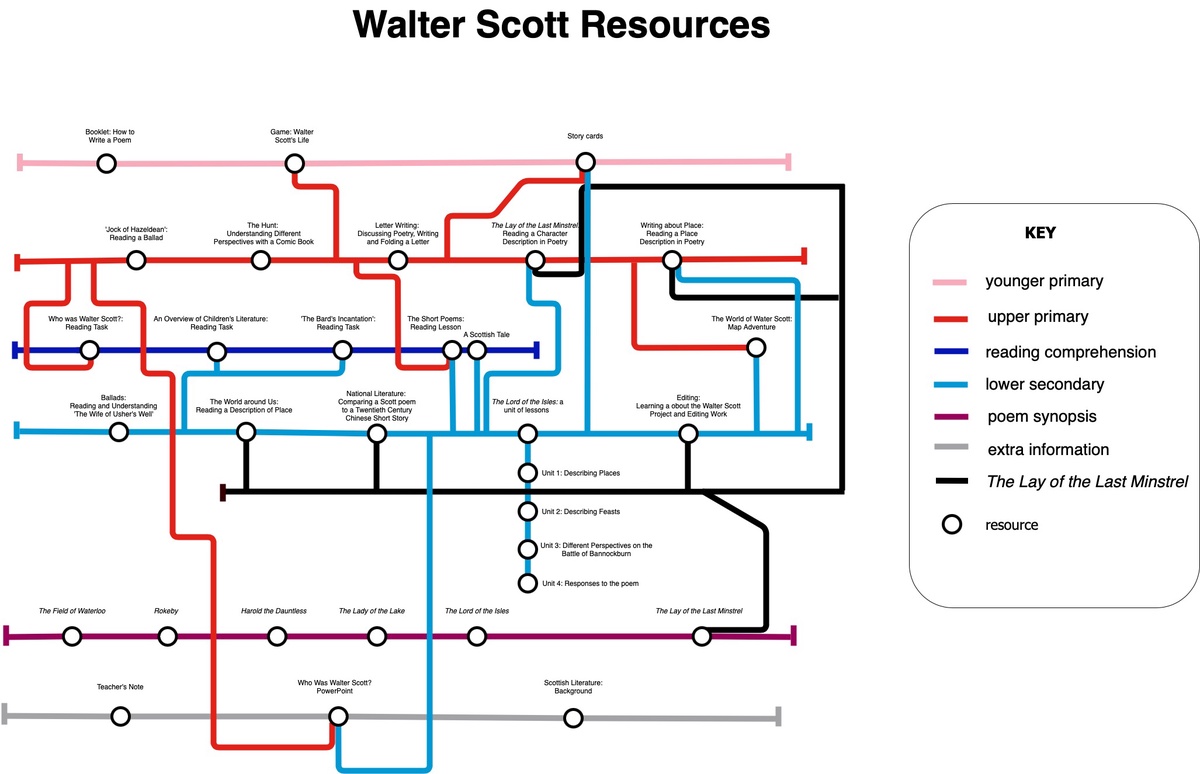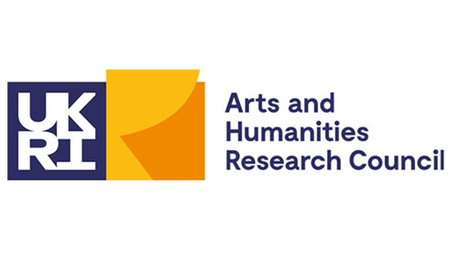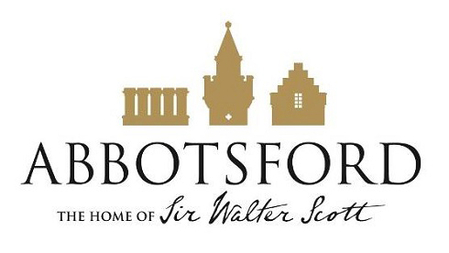This toolkit is part of the AHRC funded project 'Editing Walter Scott's Poetry: Engaging New Audiences.' It is really useful for us to measure how people are engaging with this resource. We would be very grateful for your feedback. Please fill in this form if you use any part of this resource.
Welcome to the Walter Scott toolkit for teachers and their pupils in upper primary and lower secondary schools. On these pages, you will find an exciting range of resources to help your pupils learn about literature and improve their literary, creative and social skills.
This collection of resources uses the poetry of one of Scotland’s most influential poets and authors, Walter Scott, to help pupils develop English literacy and literature skills as outlined in the Scottish Curriculum for Excellence. The aim of these resources is to use Walter Scott’s poetry as a springboard to other areas of the curriculum, enabling pupils to improve their reading, writing, speaking, listening, group work, and research skills. It is hoped that the pupils will be able to find connections between their own lives and those of people living in the past. It is also hoped that this resource will help pupils see how Scotland’s identity has developed in the past 200+ years. Pupils are not expected to read long sections of poetry; instead, the poetry acts as inspiration and as a gateway to other tasks. Activities in this resource include:
- Story cards

- A game
- A booklet
- Reading comprehensions
- Short poetry readings
- Lessons and units that cover activities including:
- Describing a place
- Researching a topic
- Reading a passage
- Writing a letter
- Paraphrasing and summarising
- Reading different points of view on the same topic
- Experiencing the same piece of literature in different mediums
The activities and units can be combined or completed as standalones.
View additional information about Walter Scott and this resource.
To help you navigate these resources, this map shows the different resources and the levels they are suitable for. The map can be downloaded here or viewed below.

Resources for younger primary pupils: Booklet (how to write a poem); Game (Walter Scott's life); Story Cards.
Resources for upper primary pupils: 'Jock of Hazeldean' (reading a ballad); The Hunt (understanding different perspectives with a comic book); Letter Writing (discussing poetry, writing/folding a letter); The Lay of the Last Minstrel (reading a character description in poetry); Writing about Place (reading a place description in poetry).
Reading comprehensions: Who was Walter Scott? (for upper primary); 'An Overview of Children's Literature' (lower secondary); 'The Bard's Incantation (lower secondary); (primary and secondary).
Resources for lower secondary pupils: Ballads (reading and understanding of 'The Wife of Usher's Well'; The World around Us (reading a description of place); Writing the Nation (comparing a Scott poem to a twentieth century Chinese story); The Lord of the Isles (unit 1 on describing places; unit 2 on describing feasts; unit 3 on different perspectives on the Battle of Bannockburn; unit 4 on different responses to the poem); Editing (learning about the Walter Scott project and editing); a prose story in Scots.
Resources for primary and secondary pupils: Story Cards; The World of Walter Scott: Map Adventure; Scottish Writers (poster).
Synopses: The Field of Waterloo; Rokeby; Harold the Dauntless; The Lady of the Lake; The Lord of the Isles; The Lay of the Last Minstrel.
Others: Teacher's Note; Introductory PowerPoint on Walter Scott.
Resources on The Lay of the Last Minstrel: Synopsis; The World around Us (secondary); Writing the Nation (secondary); Editing (secondary); Writing about Place (primary); The Lay of the Last Minstrel (primary).
This work was supported by the Arts and Humanities Research Council Grant Number AH/V011111/1.
It is part of The Edinburgh Edition of Walter Scott's Poetry: Engaging New Audiences. It was developed by Dr Anna Fancett as part of the Walter Scott Research Centre at the University of Aberdeen with the support of Abbotsford, Scott's home in the Scottish Borders and The Association for Scottish Literature.


